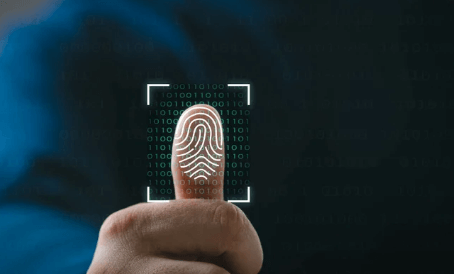How Biometric Authentication Is Changing Security
Biometric authentication is transforming security systems by enabling rapid, accurate identity verification across multiple domains. Advances in fingerprint, facial, and behavioral biometrics have improved access control and fraud prevention. However, these technologies introduce complex privacy and data protection concerns. As biometric systems become more integrated into daily life, understanding their evolving capabilities and associated risks remains essential. The balance between enhanced security and individual rights will shape future developments in this field.
Enhanced Security Measures in Various Sectors
Enhanced security measures across various sectors have increasingly incorporated biometric authentication technologies to bolster identity verification processes. Voice recognition and facial analysis provide rapid, non-intrusive methods that enhance security while maintaining user autonomy.
These modalities enable precise identification, reduce fraud, and support seamless access control, empowering individuals to assert their identity confidently without compromising their desire for freedom.
Advances in Biometric Technologies and Their Applications
How have recent advancements in biometric technologies expanded their practical applications across diverse fields? Innovations in voice recognition and behavioral biometrics enable enhanced authentication methods that are unobtrusive and adaptive.
These technologies facilitate seamless security integration, offering users greater freedom while maintaining robustness. Their evolving capabilities support diverse sectors, fostering more secure, user-centric access controls and identity verification systems.
See also: How Big Data Is Revolutionizing Healthcare
Privacy Concerns and Data Protection Challenges
Recent advancements in biometric technologies have intensified concerns regarding privacy and data security, as the sensitive nature of biometric identifiers necessitates rigorous protection measures.
Challenges in data ownership and consent management highlight vulnerabilities, emphasizing the need for transparent policies that empower individuals with control over their biometric data.
Ensuring privacy rights are preserved amid evolving security landscapes remains a critical priority.
Future Trends and Ethical Considerations in Biometric Security
What are the emerging trajectories and ethical implications shaping the future of biometric security?
Advancements focus on integrating robust ethical frameworks to address data privacy challenges, ensuring individual rights are preserved amid increasing biometric reliance.
Future trends emphasize transparency and accountability, enabling users to exercise autonomy while fostering trust within biometric systems, aligning technological progress with ethical imperatives.
See also: How Big Data Is Revolutionizing Healthcare
Conclusion
As biometric authentication continues its relentless march into every facet of security, one must marvel at its paradoxical nature—enhancing safety while threatening privacy with equal fervor. Future innovations promise even more seamless access, yet risk turning personal data into the ultimate security currency. Ultimately, society must navigate this delicate dance, balancing technological progress with ethical restraint, lest we trade convenience for the illusion of security and become unwitting subjects in a biometric surveillance spectacle.






